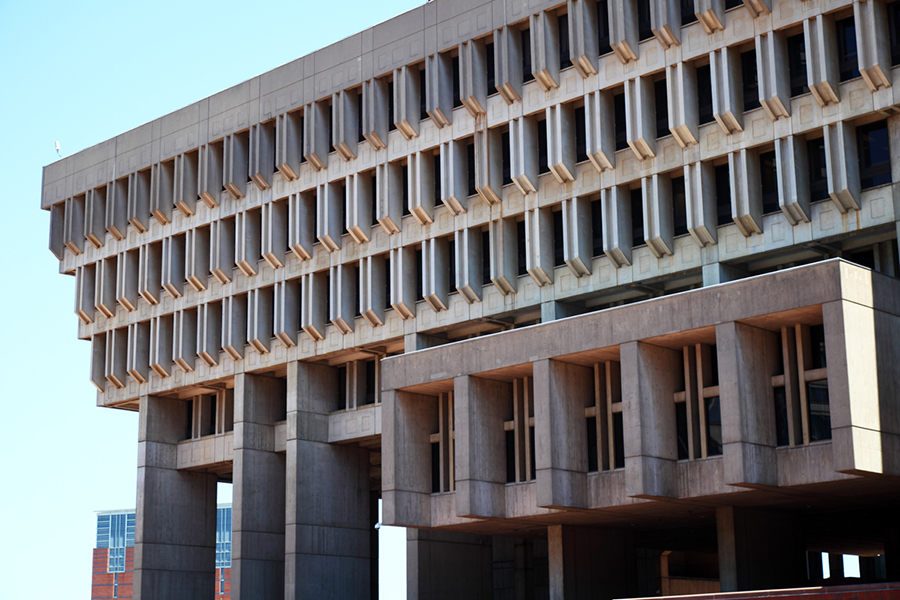Boston’s City Council Just Passed an Overhaul of Airbnb
New rules on short-term rentals will shake up a booming industry.

Photo via iStock/Pixonian
It’s the start of a new era for Airbnb in Boston.
Boston’s City Council on Wednesday voted 11-2 to adopt new rules for short-term rentals, a policy change that would outlaw many of the units currently listed on the popular app and, in theory, free up thousands of units of housing in the city now used exclusively by visitors. The “no” votes came from Councilors Frank Baker and Mark Ciommo.
A new city ordinance would set up a strict new system requiring Airbnb hosts to register units with the city, pay fees, and alert their neighbors. It would also, for the first time, ban what are perhaps the most despised kind of Airbnb listings: So-called “investor units,” or apartments and homes listed on the app that are not occupied by their owners. The changes would take effect in January, but would be delayed through September of next year for hosts with existing short-term rental units.
The vote follows a push from Walsh to rein in a fast-growing industry that, in a tight housing market, has kept as many as 2,000 homes out of reach for Bostonians looking for a place to live.
In a statement Wednesday, Walsh indicated he would sign off on the new rules. “My goal in regulating short-term rentals has always been to responsibly incorporate the growth of the home-share industry into our work to create affordable housing for all by striking a fair balance between preserving housing while still allowing Bostonians to benefit from this new industry,” he said. “I look forward to signing this legislation and I am committed to monitoring the impacts to ensure it serves its intended purpose in our neighborhoods.”
In order to use Airbnb, homeowners in this new system would have to register with the city and pay an annual fee: $25 to rent out an in-unit bedroom, or $200 to rent out an entire unit that is either a host’s primary residence or is part of an owner-occupied two- or three-family building. Those who own and live in multi-family homes would be allowed to rent one extra unit in those buildings for an unlimited number of days. Walsh had called for a 120-day cap on that type of rental, but councilors voted to eliminate it. Airbnb and services like it would also be required to share data with city regulators and would have to agree to remove from its service any units that break the rules. Several types of other short-term rentals—including bed-and-breakfasts and units used for hospital-related purposes—would be exempt.
“This legislation balances the rights of homeowners to earn supplemental income with protections for housing stock under pressure from the investor-owned segment of the short-term rental industry,” Councilor Lydia Edwards wrote in a statement. “By preventing loss of traditional rental units to short-term rentals, the ordinance will supplement citywide efforts to preserve housing units and increase housing stock through new construction.”
Separately, state legislators are considering a plan to tax Airbnb and other short-term rental services.
Airbnb, based in San Francisco, has fought back, hard, against new regulations, arguing they would harm a service that gives Boston residents a way to earn extra money, while also offering travelers an affordable alternative to hotels. Its campaign has included ads, email blasts and phone calls directed at its users, and has featured has targeted specific city councilors.
Overhauling the short-term rental industry may impact housecleaners and others who now work to maintain the properties. It may also cut into what Airbnb described in an internal study as tourism benefits to Boston neighborhoods with fewer hotels, such as Dorchester, Roxbury, Mattapan, and Jamaica Plain.
In a statement following the vote, Airbnb called the move “disappointing” and said it was “proof that our community’s feedback and concerns were not heard”:
For two years Airbnb and our Boston hosts have worked closely with the Mayor and members of the City Council to share helpful data and collaborate on fair home sharing policy. Today’s disappointing vote is proof that our community’s feedback and concerns were not heard. The new ordinance unfortunately creates a system that violates the privacy of our hosts, and prevents Boston families from making much-needed extra income in one of the country’s most expensive cities. We’re hopeful there will be an ongoing discussion on these topics so that our community can continue to fight for their ability to share their homes and make ends meet.
HomeAway, another short-term rental company that lists units in Boston, also said in a statement it was frustrated with the decision and warned it would have “dangerous consequences” for the tourism industry.
The trade association for the hotel industry, meanwhile, cheered the council for “acting to protect Boston from exploitation at the hands of wealthy, out-of-town interests who have been buying up thousands of housing units in order to turn them into illegal hotels,” adding, “Today’s action preserves the rights of real home-sharers while reining in the bad actors who are contributing to Boston’s skyrocketing housing costs and wreaking havoc on many of our neighborhoods.”


